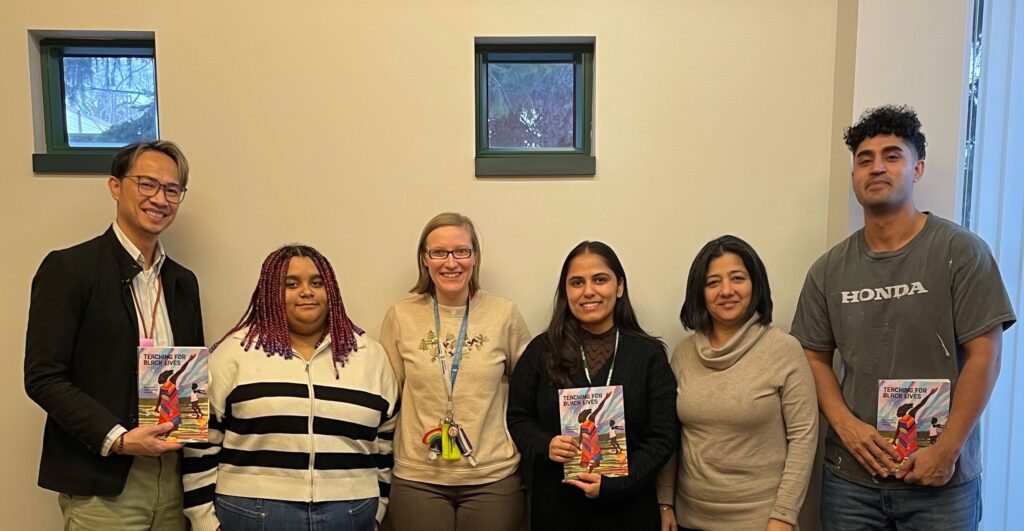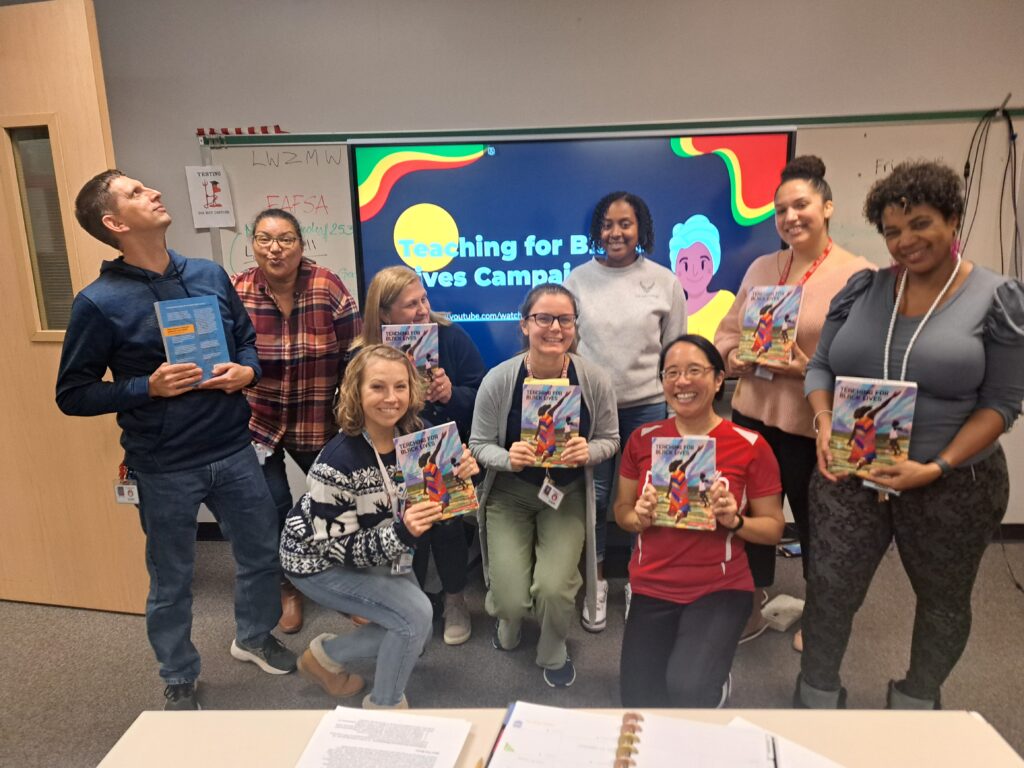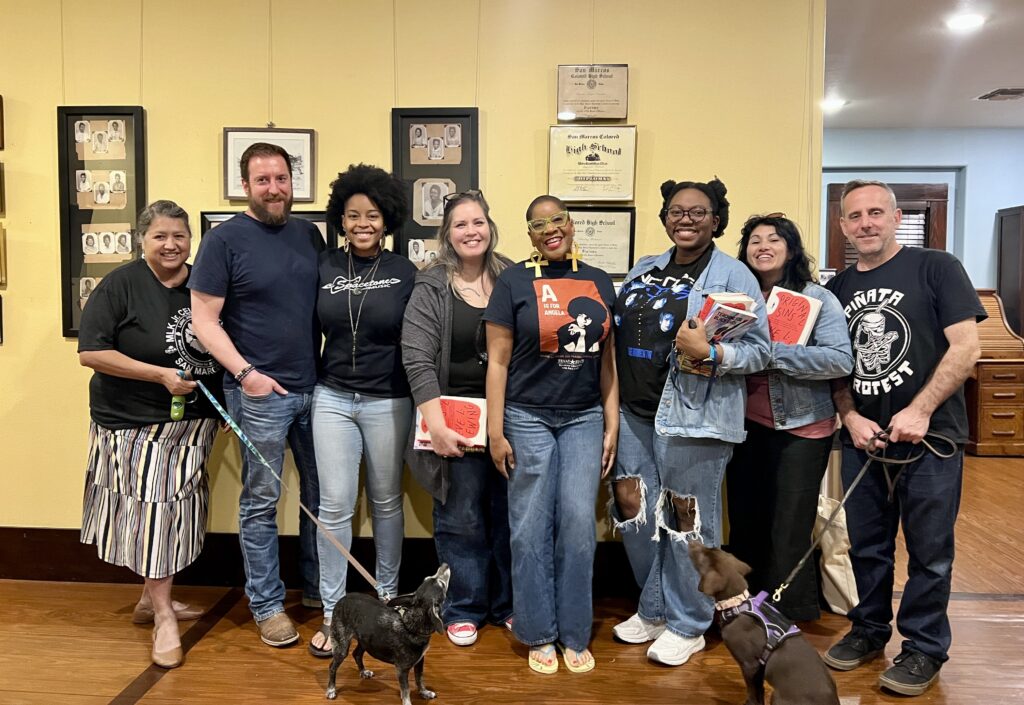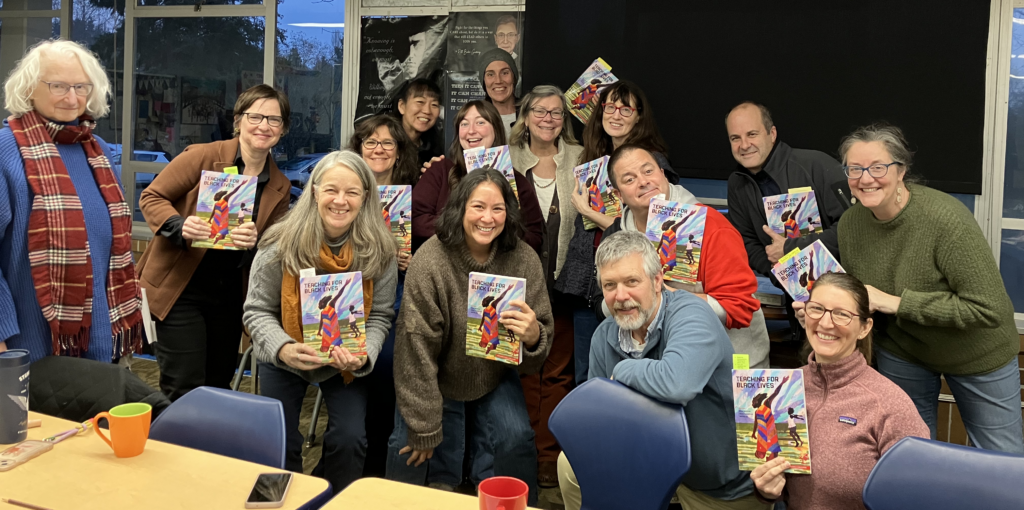For the fifth year, the Zinn Education Project is fueling communities of anti-racist educators by sponsoring nearly 70 Teaching for Black Lives study groups across the United States, a group in Canada, and a group in Puerto Rico.
Across the country, right-wing legislatures have pushed laws and policies to criminalize teaching honestly about U.S. history and to restrict students’ ability to ask questions. Books have been banned and teachers fired. But despite this repression, educators everywhere continue to find ways to help their students think critically about the history of this country — and how they can play a role in making the world more just.
The Zinn Education Project (ZEP) is committed to supporting educators in this work. Since 2020, ZEP has hosted hundreds of Teaching for Black Lives study groups. Study groups receive a copy of Teaching for Black Lives and a Rethinking Schools magazine subscription for each participant, a year-long menu of workshops and seminars to choose from, and access to a network of social justice teachers across the United States.
This year’s study groups represent 31 states, including Utah for the first time. We also have 17 study groups led by alumni coordinators with new and alumni participants, building on work from past years.
Meet a few of the 2024–2025 study groups below.

 shared have truly ignited meaningful conversations among our team. Staff members were able to select and share poems with their respective schools and colleagues, fostering engagement and connection. The flexibility of adapting these readings to suit various grade levels and align with our Canadian context has made it
shared have truly ignited meaningful conversations among our team. Staff members were able to select and share poems with their respective schools and colleagues, fostering engagement and connection. The flexibility of adapting these readings to suit various grade levels and align with our Canadian context has made it 
 Eleven educators from San Marcos’ elementary schools, high schools, and state university meet monthly. Members include elementary teachers, high school teachers, and Texas state university teacher educators. Skyller Walkes, Calaboose Museum engagement specialist and group coordinator, said,
Eleven educators from San Marcos’ elementary schools, high schools, and state university meet monthly. Members include elementary teachers, high school teachers, and Texas state university teacher educators. Skyller Walkes, Calaboose Museum engagement specialist and group coordinator, said,  We want to move past our own barriers and fears; to also become more knowledgeable as we commit to teaching differently. We want our teachers to feel empowered and confident that their teachings empower and engage all students.
We want to move past our own barriers and fears; to also become more knowledgeable as we commit to teaching differently. We want our teachers to feel empowered and confident that their teachings empower and engage all students.